
11+ Best Databases for Next.js in 2026
Next.js is not just a framework but a game-changer in modern development. It helps developers to blend simplicity and innovation perfectly.
So, the question arises: which is the best database for Next.js applications? Many developers struggle to find the best database for their Next.js full-stack projects.
But don’t worry! We have developed a solution.
In this blog, we have shared the 11+ best databases for Next.js projects in 2026. So, you can just take a look and choose the right one that meets your business.
Best Database for Next.js
We have researched and gathered the list of the best databases for Next.js. We have listed the types, features, pros, and cons of each database. You can simply go through and select the one that meets your goals.
| Database | Type | API | Free Tier | Global Distribution | Data Branching | Real-time Updates |
| PostgreSQL | Relational | PostgreSQL API | ✅ | ✅ | ❌ | ✅ |
| MySQL | Relational | MySQL API | ✅ | ✅ | ❌ | ❌ |
| Supabase | Relational | PostgreSQL | ✅ | ✅ | ✅ | ✅ |
| PlanetScale | Relational | MySQL | ✅ | ✅ | ✅ | ✅ |
| FaunaDB | Document-relational | GraphQL API | ✅ | ✅ | ❌ | ✅ |
| DynamoDB | Non-relational | DynamoDB API | ✅ | ✅ | ❌ | ✅ |
| MongoDB | Non-relational | MongoDB API | ✅ | ✅ | ❌ | ✅ |
| Xata | Relational | REST API | ✅ | ✅ | ❌ | ✅ |
| Upstash | Non-relational | Upstash API | ✅ | ✅ | ✅ | ✅ |
| Neon | Relational | Neon API | ❌ | ✅ | ✅ | ✅ |
| Turso | Relational | Turso API | ✅ | ✅ | ✅ | ✅ |
Now let's dive deep-
PostgreSQL
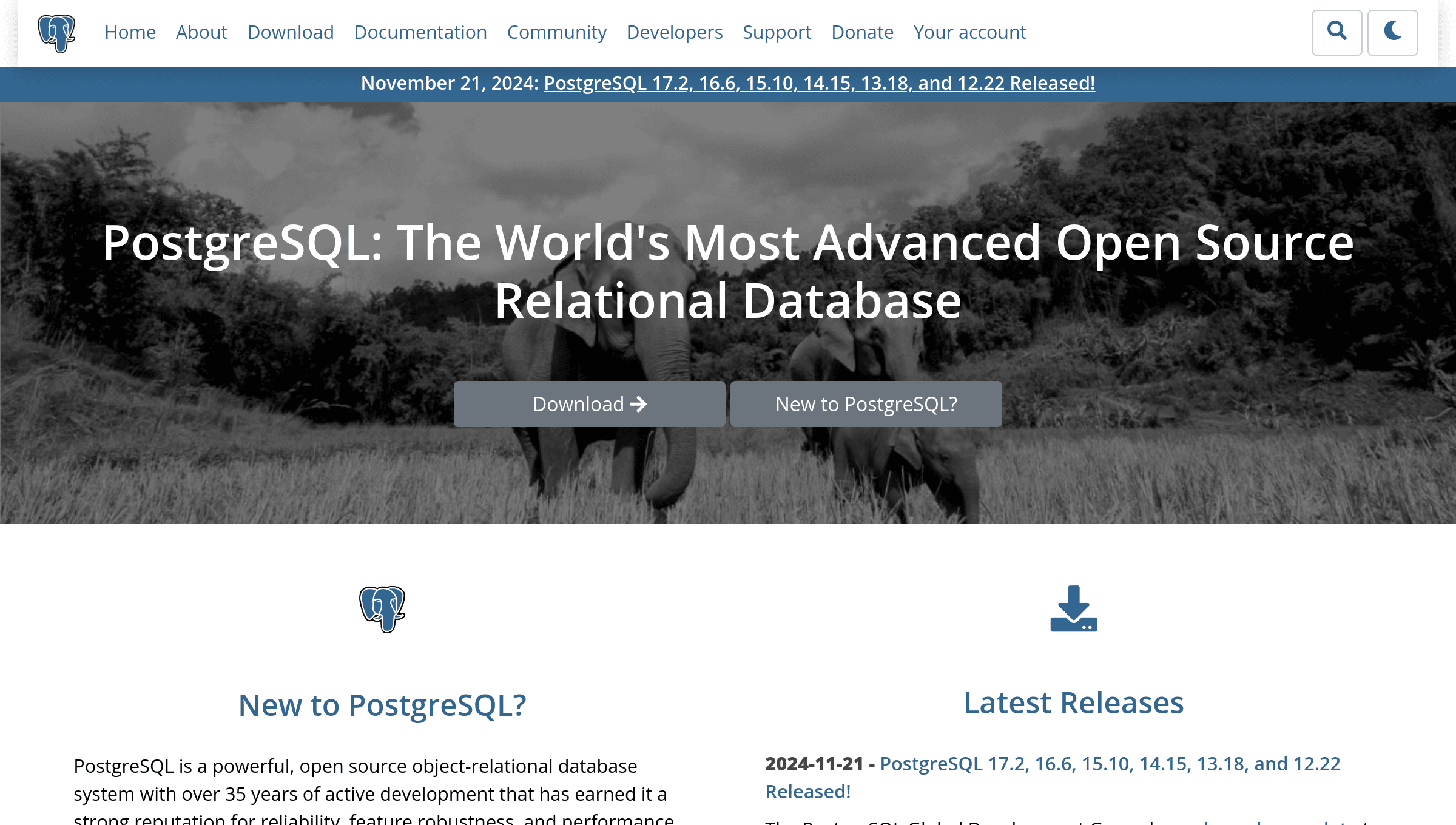
PostgreSQL is a stable, enterprise-class, and advanced database. It is an open-source database for Next.js applications. It is a relational database and supports SQL and JSON. Moreover, the database is highly stable, given its foundation of 35 years of community support. Moreover, PostgreSQL supports advanced data types and optimized performance for your applications.
Another reason is that PostgreSQL is reliable and scalable. So, you can easily manage and secure your data. It is compatible with Next.js 16 and is well-known for its robust features. The database is highly extensible. So, you can define your data types, build your custom functions, and write your own code.
Types
- Relational database (Supports SQL and JSON)
Pros
- It is a free and open-source DBMS and is compatible with the latest Next.js frameworks.
- PostgreSQL is well-supported by Django.
- Also, it is flexible, scalable, and extensible. Therefore, the platform is ideal for managing complexity and ensuring data integrity.
Cons
- The platform is not beginner-friendly.
- It needs advanced configurations and is not suitable for a few data types
MySQL
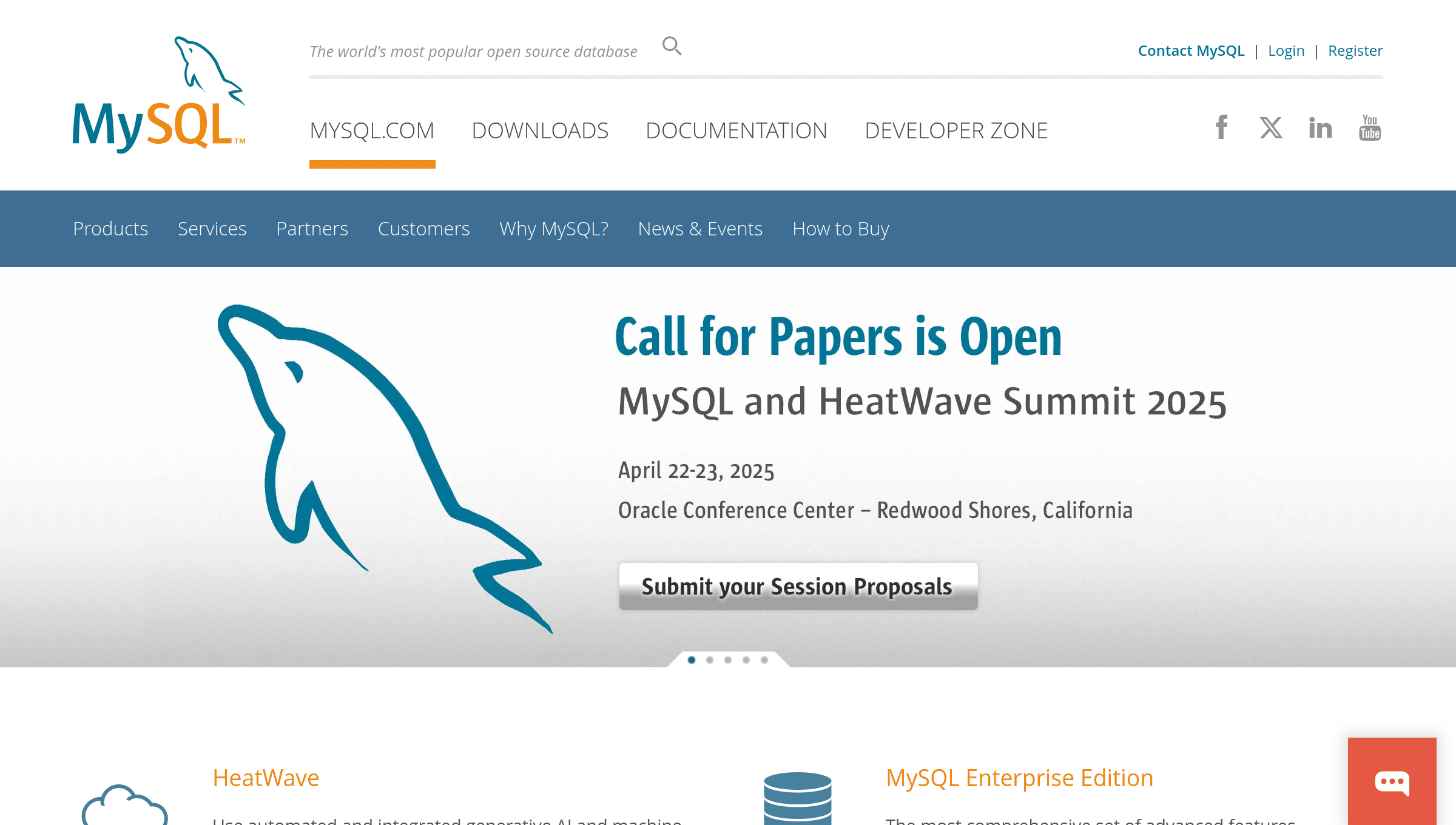
MySQL is an amazing relational database for Next.js applications. It is an open-source database with better stability and reliability. The RDBMS supports the latest version of Next.js. Moreover, it is suitable for any small or large applications, including operational and high-traffic applications.
Additionally, serverless databases can significantly enhance your application's performance. The platform is easy to use and integrates. It supports various programming languages and frameworks to make the work easier for developers.
Additionally, you can add the managed database to any self-hosted or cloud-hosting environment, such as AWS, Google Cloud Platform, or Microsoft Azure.
Types:
- Relational database
Pros
- It is a free and open-source DBMS with a large community support.
- The platform offers high performance, better scalability, and flexibility.
- Again, the DBMS is platform-independent. So, you can use it in any operating system.
Cons
- For high loads, you may occasionally encounter performance issues.
- It doesn’t have a good debugging and development tool.
Supabase
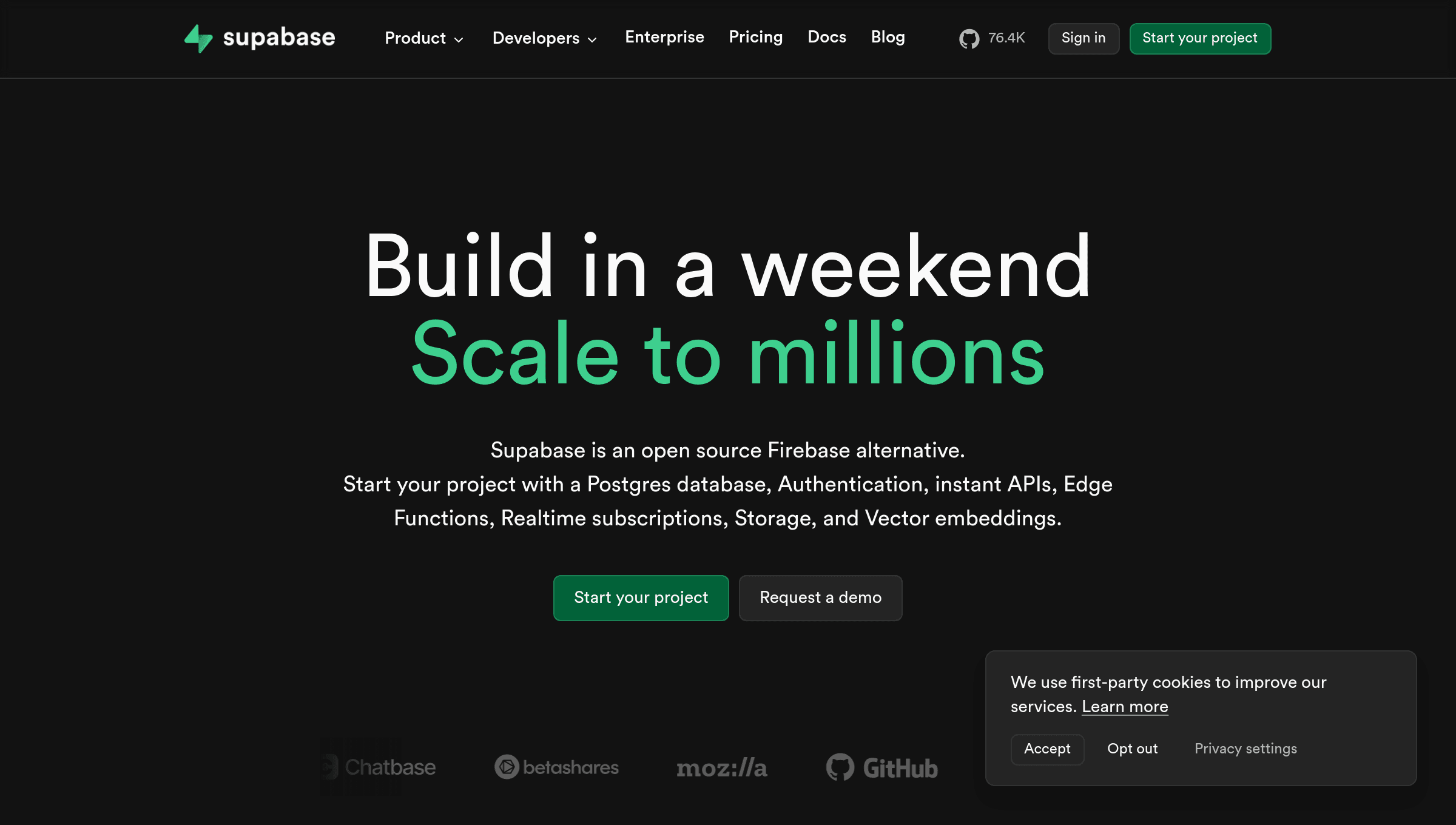
Supabase is an open-source and PostgreSQL-based database. It is a serverless backend service provider and a Firebase alternative.
Moreover, you can use all the features of the PostgreSQL database. You can also extend the features with just an extension. What’s more, Supabase is fully compatible with the latest Next.js version. So, you can easily integrate with your Next.js applications and manage data seamlessly.
Additionally, Supabase offers an open-source object store and authentication, providing enhanced scalability and security. It is easy to set up and includes automated APIs. The database platform includes an in-built SQL editor and supports various programming languages and development environments.
Types
- Serverless relational database (Based on PostgreSQL)
Pros
- Supabase is easy to set up and use. It is based on PostgreSQL and manages complex queries.
- The DBMS provides a RESTful API, real-time subscriptions, and built-in authentication.
- It provides high performance and scalability for larger applications.
Cons
- The basic operations are easy to use, yet the advanced features need a deeper understanding.
- It might lack some advanced features and integrations.
PlanetScale
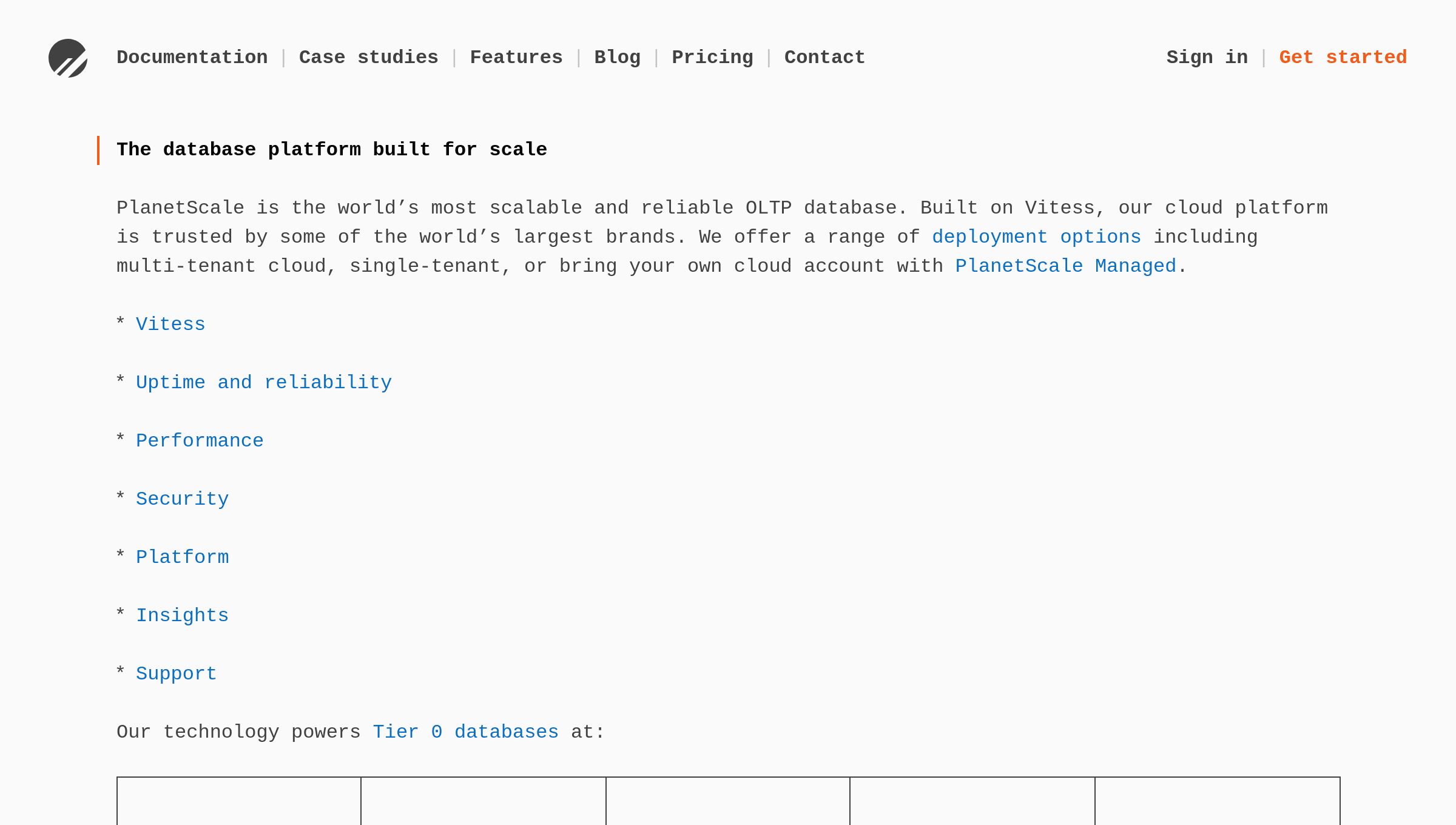
PlanetScale is a relational database for Next.js applications. It is a serverless MySQL database. It enables businesses to migrate, launch, and manage their databases with ease. Plus, PlanetScale is a database-as-a-platform that supports modern JavaScript frameworks, including Next.js 16.
Moreover, the platform utilizes Vitess and Kubernetes, and features a database branching concept. The database offers optimized performance with backups, schema changes, and version updates. Also, the DBMS is built for fast and efficient performance with no impact on features.
Types
- Relational-serverless database (Based on MySQL)
Pros
- PlanetScale provides high availability and scalability, along with global data distribution.
- Also, it includes serverless functions with zero-downtime migrations.
- The platform offers improved scalability, performance, and reliability for developers.
Cons
- The platform has compatibility limitations for Vitess architecture.
- It is not suitable for small projects and applications.
FaunaDB
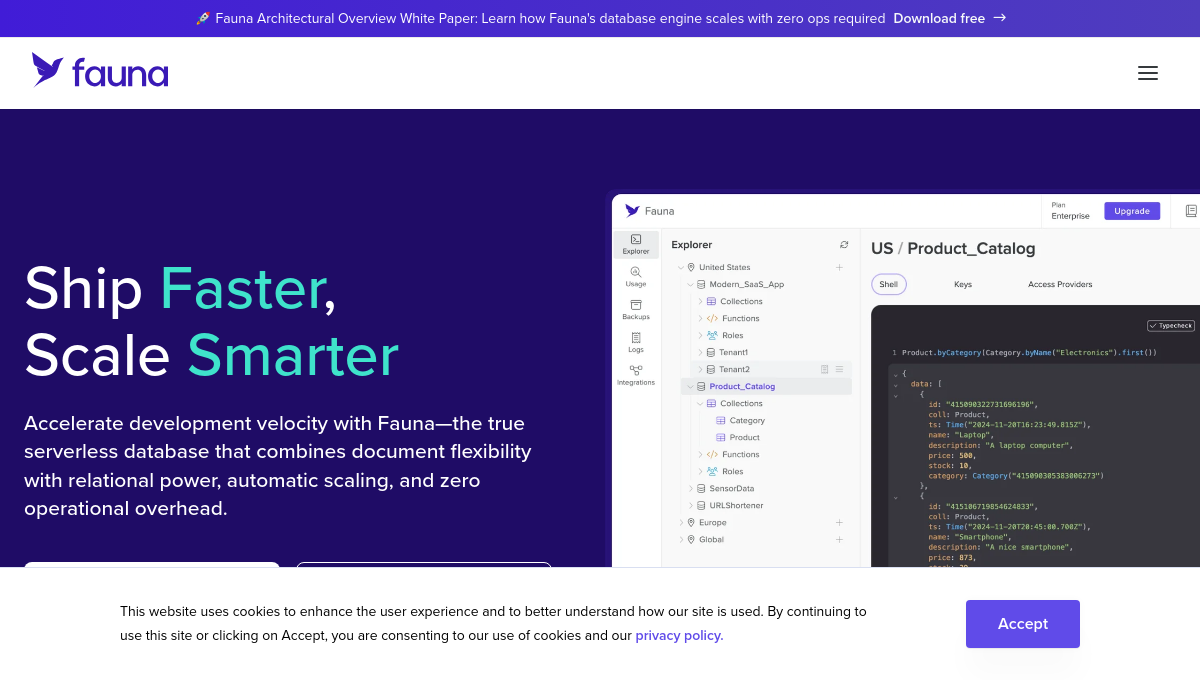
FaunaDB is a serverless and consistent database for Next.js. It is a database-as-a-cloud platform with GraphQL and Fauna APIs. Moreover, it is a NoSQL database with global scalability, high performance, and a unique query language. The connections are HTTP-based and use FaunaDB in serverless functions.
FaunaDB is fully compatible with Next.js and integrates seamlessly with the applications.
Another thing with that, it is super-fast and includes auto-scalling features for a better development experience. The database supports cloud infrastructure from AWS, Google Cloud Platform, and Azure.
Types
- Document-relational database (serverless database)
Pros
- The database supports global distribution and low-latency access.
- It has a native GraphQL API and Fuana API support.
- The platform is best for complex data relation applications.
Cons
- You may have some difficulties with OLAP and SQL integrations.
- It has a complex setup and lacks features.
Amazon DynamoDB
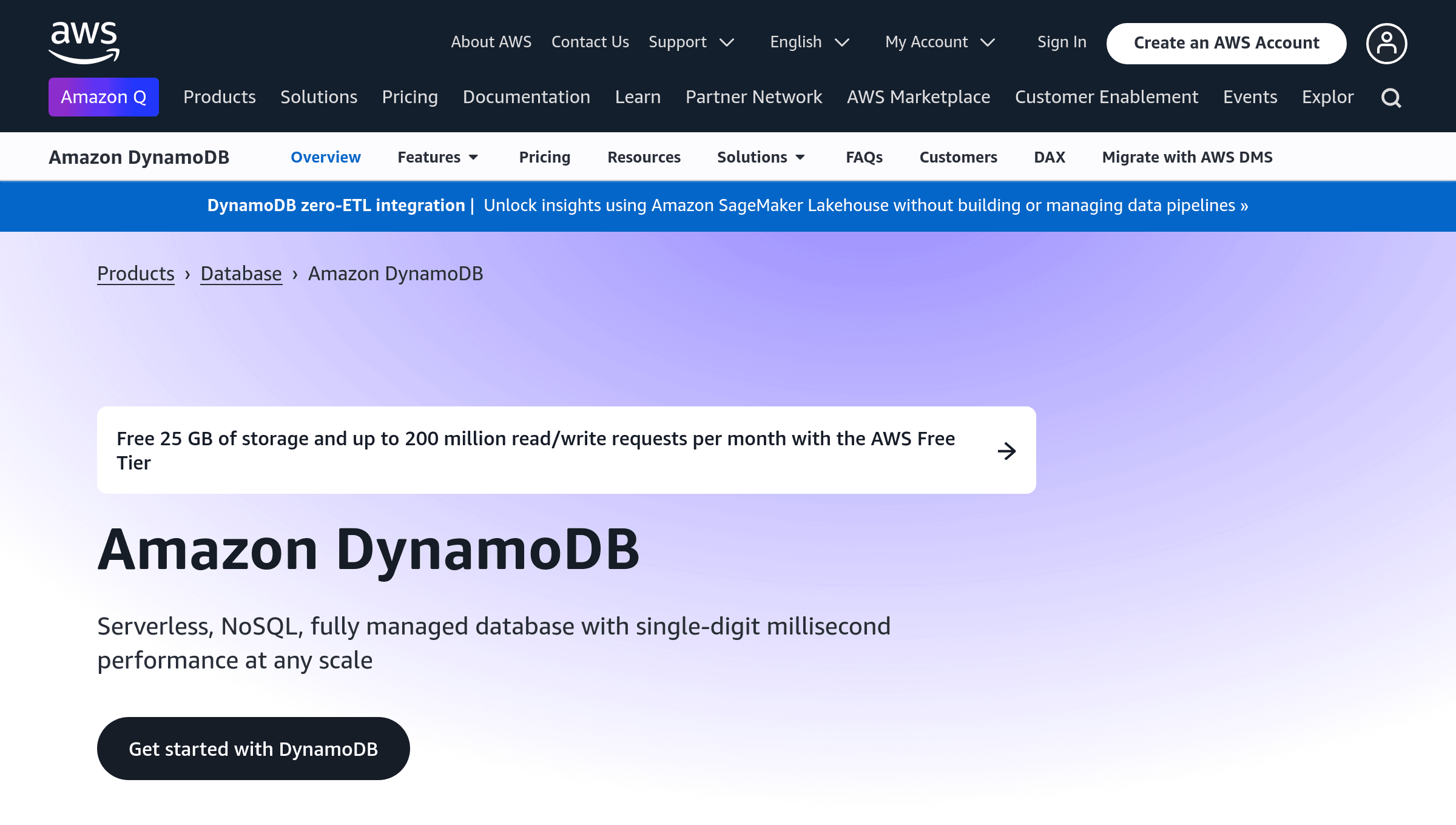
Amazon DynamoDB is a NoSQL and fully managed database for Next.js applications. It is a serverless database with limitless scalability. It is an efficient and high-performance database to help enterprises to manage their data easily. The database has built-in security, backup, restore, and in-memory caching capabilities.
In addition to that, Amazon DynamoDB provides low latency and better performance with horizontal scaling and global tables. It supports various programming languages and frameworks including Node.js, Python, Java, Go, and C++.
Additionally, the platform is hosted on AWS, offering improved scalability and high availability.
Types
- Non-relational database (serverless and fully managed database)
Pros
- It is a fully managed, serverless, and NoSQL database for Next.js applications.
- The platform provides fast, consistent, and high-performance within a single-digit milliseconds.
- It has automatic data management and a fine-grained access control system.
Cons
- It doesn’t interface with SQL, so the querying is much more difficult.
- Since it lacks some functionalities, it is not ideal for complex endpoints.
MongoDB
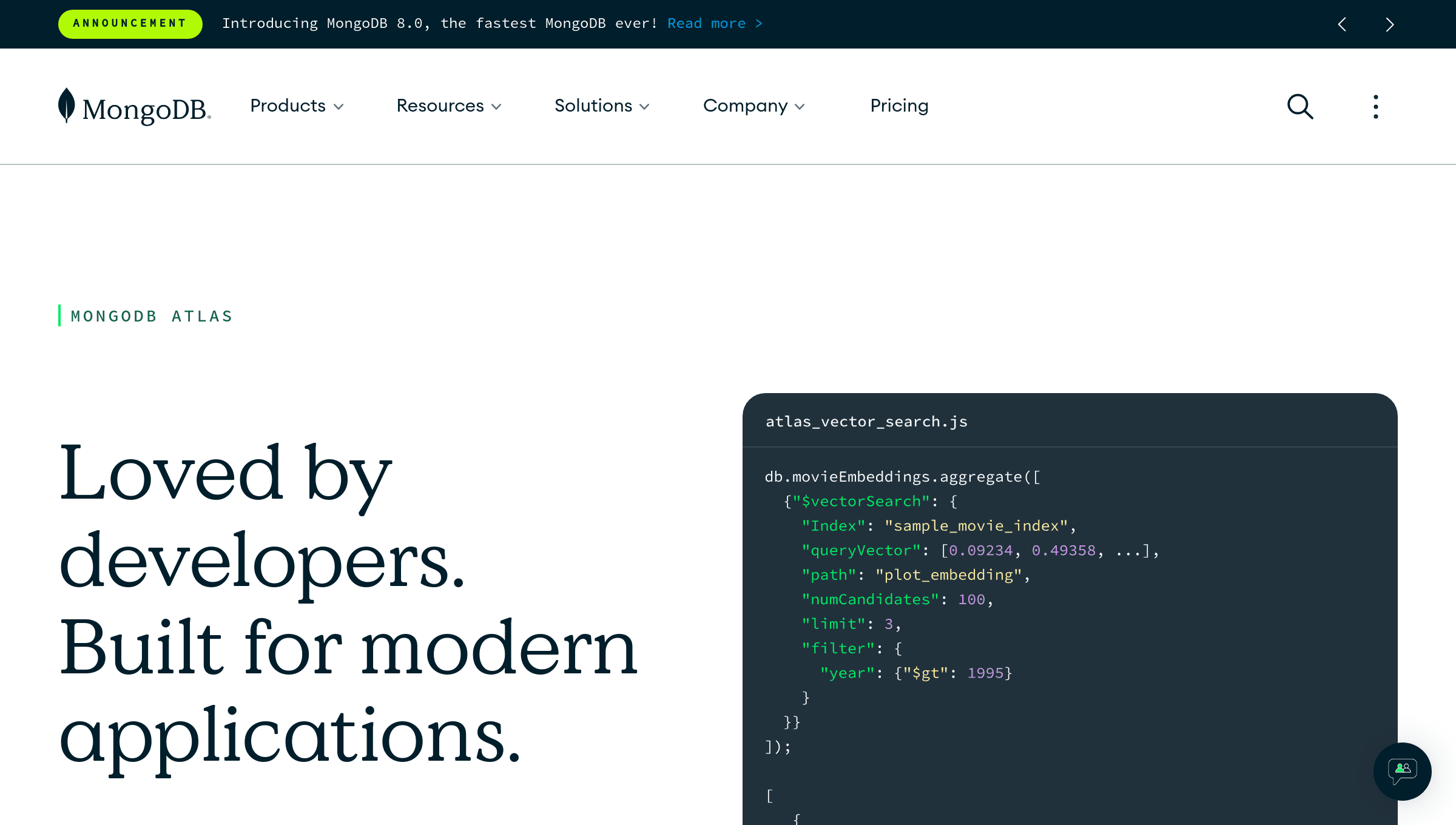
MongoDB is another popular NoSQL database for Next.js projects. It is an easy-to-use, scalable, and flexible database. It has a strong backend of Mongoose and is built on the BSON format. So, it is faster than the other databases.
Moreover, MongoDB is a beginner-friendly database with a large number of built-in functions. You can host the database with Microsoft Azure, Google Cloud, and AWS. Plus, MongoDB is compatible with various programming languages, including C, C++, Java, JavaScript, Python, Ruby, Rust, and many more.
Types
- Non-relational database
Pros
- MongoDB is a beginner-friendly platform with built-in functions.
- It is fully flexible and scalable for any Next.js application.
- It includes a wide number of programming languages for an easy workflow.
Cons
- For a larger database, it may lack some queries.
- You may face some inconsistencies in management.
Xata
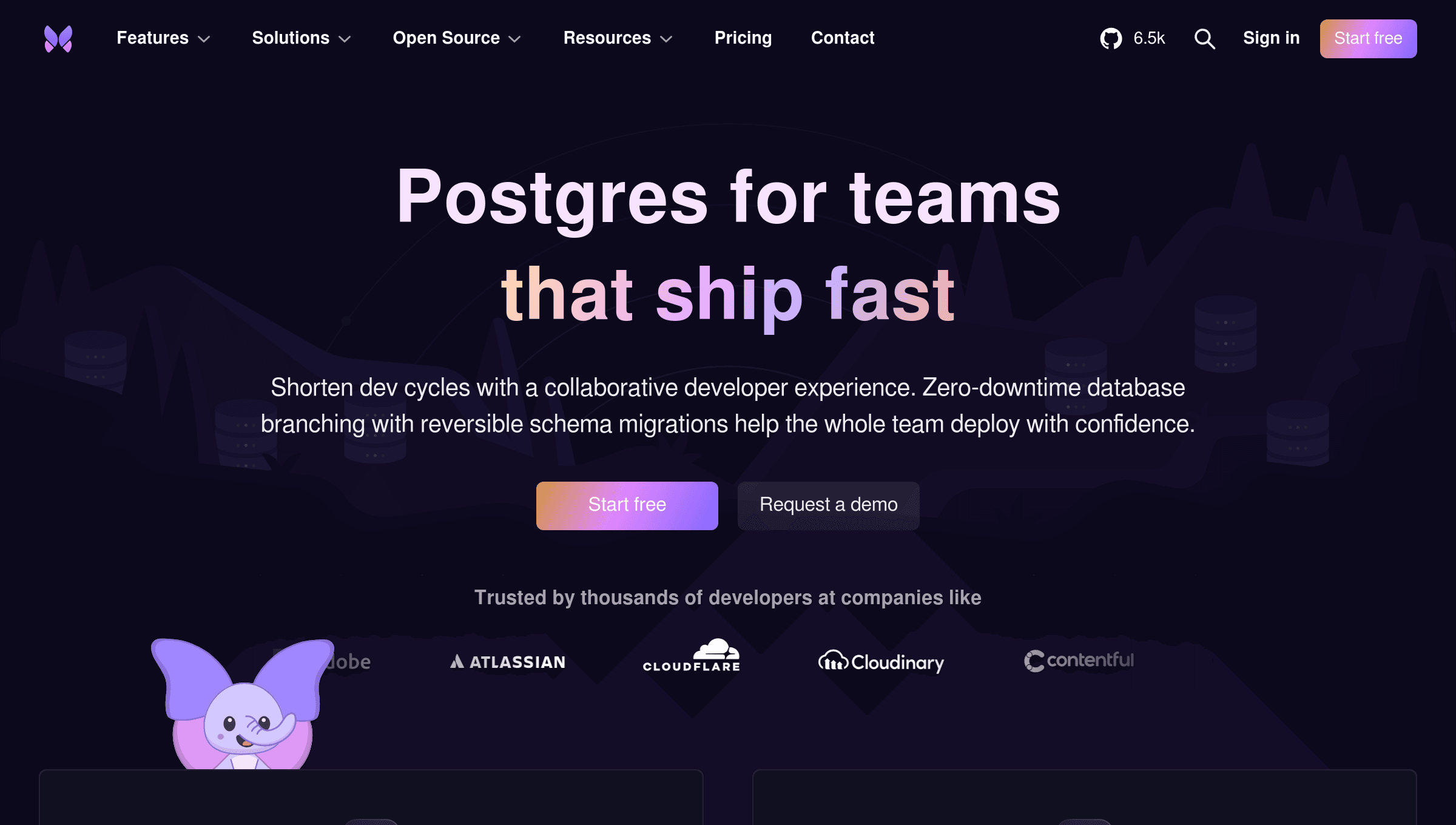
Xata is a powerful serverless database for Next.js applications. It is a user-friendly platform powered by OpenAI. It is a Jamstack for developers, helping them easily set up the database schema and manage their workflow. The DBMS has extensive documentation, SDKs, and integration with LangChain.
Moreover, Xata is a cloud-based database that utilizes PostgreSQL and Elasticsearch. The AI capabilities make data querying, management, and storage options powerful. It also includes advanced AI-powered chatbots, full-text search, and schema migration.
Types
- Relational database (Cloud-based with PostgreSQL)
Pros
- Xata is a simple, serverless, and user-friendly database for your Next.js projects.
- It smoothly integrates with front-end frameworks and development tools.
- It integrates with OpenAI for better AI functionality and features.
Cons
- The platform is not very suitable for larger applications.
- It offers limited customization options.
Upstash
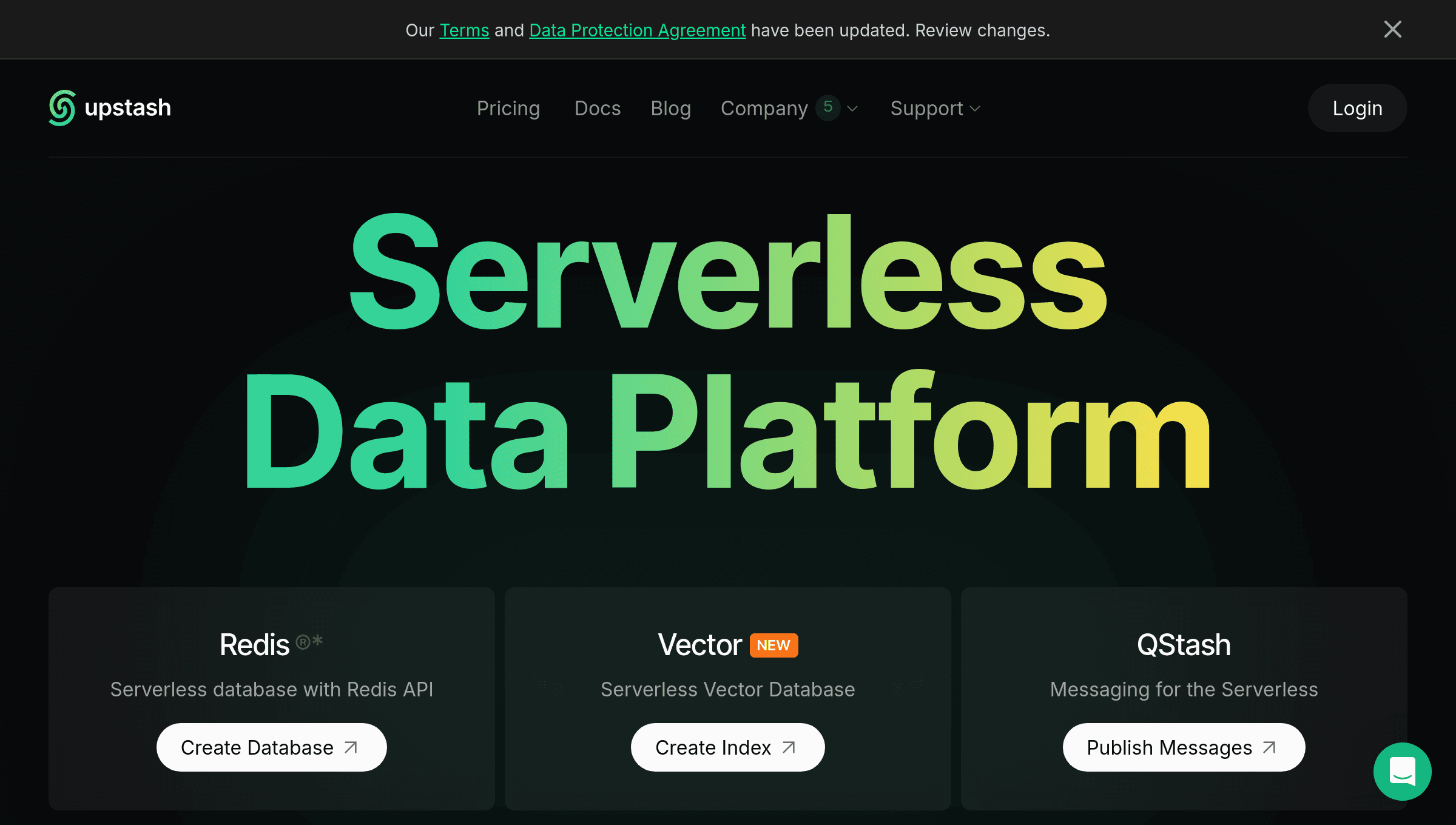
Upstash is a low-latency serverless database platform. It is another popular serverless data caching. The platform is also compatible with Radis API and real-time data processing. Additionally, it is cost-effective and easily scalable, requiring minimal maintenance.
The platform is fully compatible with Next.js 16 and edge functions for better performance. Also, you can host the DBMS in Digital Ocean, Fly.io, and Cloudflare Workers. Upstash has a pay-per-request feature. So, you can only pay for what you have used.
Types
- Non-relational serverless database
Pros
- Upstash is an easy-to-use and low-latency database for Next.js applications.
- It is a serverless platform and offers good support for pay-per-request pricing.
- Also, the platform offers multi-region support and seamless integration.
Cons
- The pricing is a little complex.
- The edge caching doesn’t support cache validation.
Neon
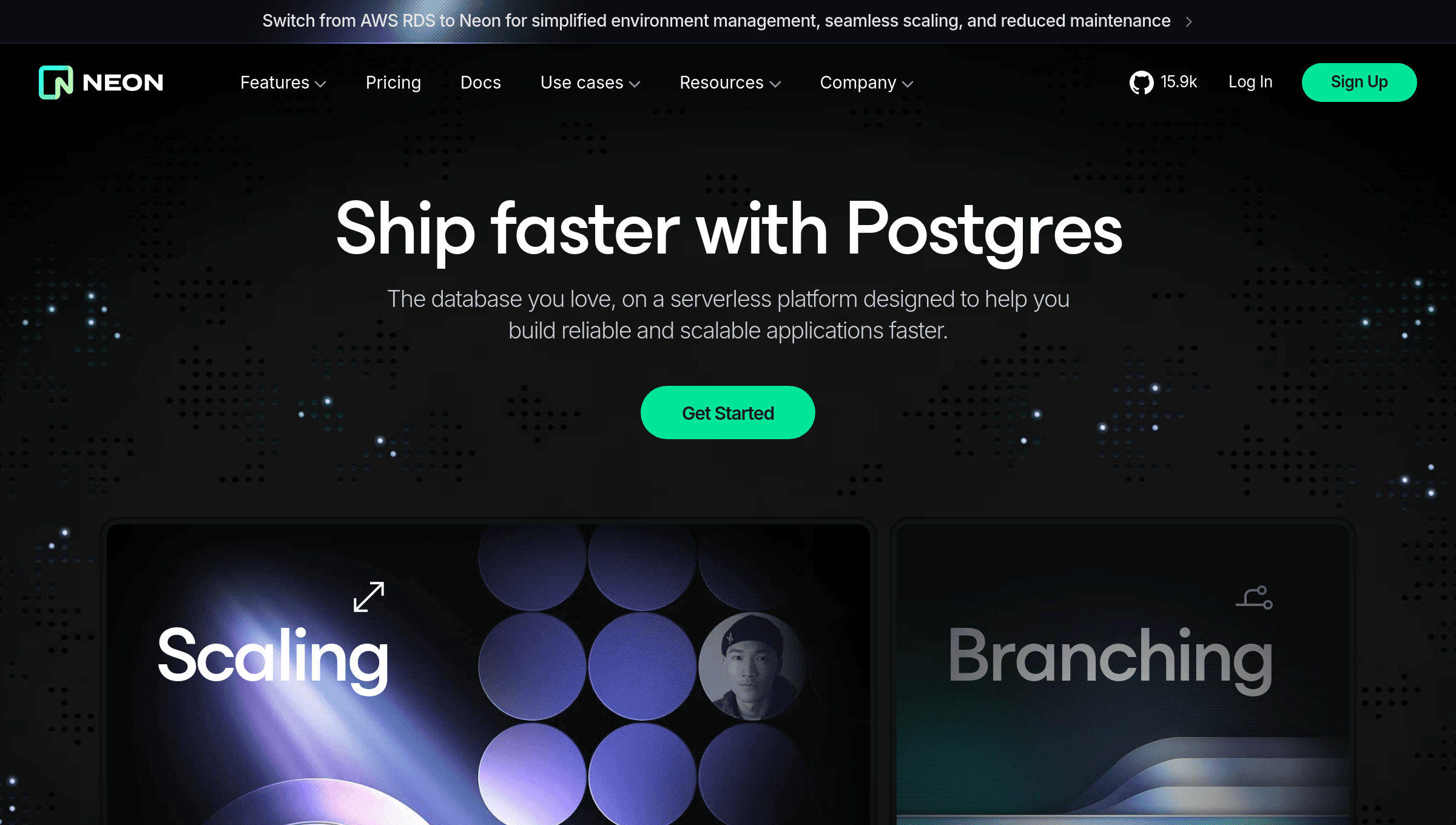
Neon is a serverless and scalable PostgreSQL database. It is an open-source and user-friendly database platform. It is a simple database and offers better scalability, reliability, and flexibility. The platform features auto-scaling for improved performance during high-traffic periods.
Moreover, the platform offers multi-cloud support, advanced security, and high availability. With built-in branching and other features, Neon enables developers to experiment with features, roll back changes, and manage their workflow easily.
Types
- Relational serverless and scalable database
Pros
- Neon is a serverless and open-source PostgreSQL database.
- It is a simple DBMS but offers better scalability, reliability, and performance.
- Additionally, it features auto-scaling for improved performance and speed.
Cons
- It has limited customization features.
- For beginners, data branching can be a bit complex.
Turso
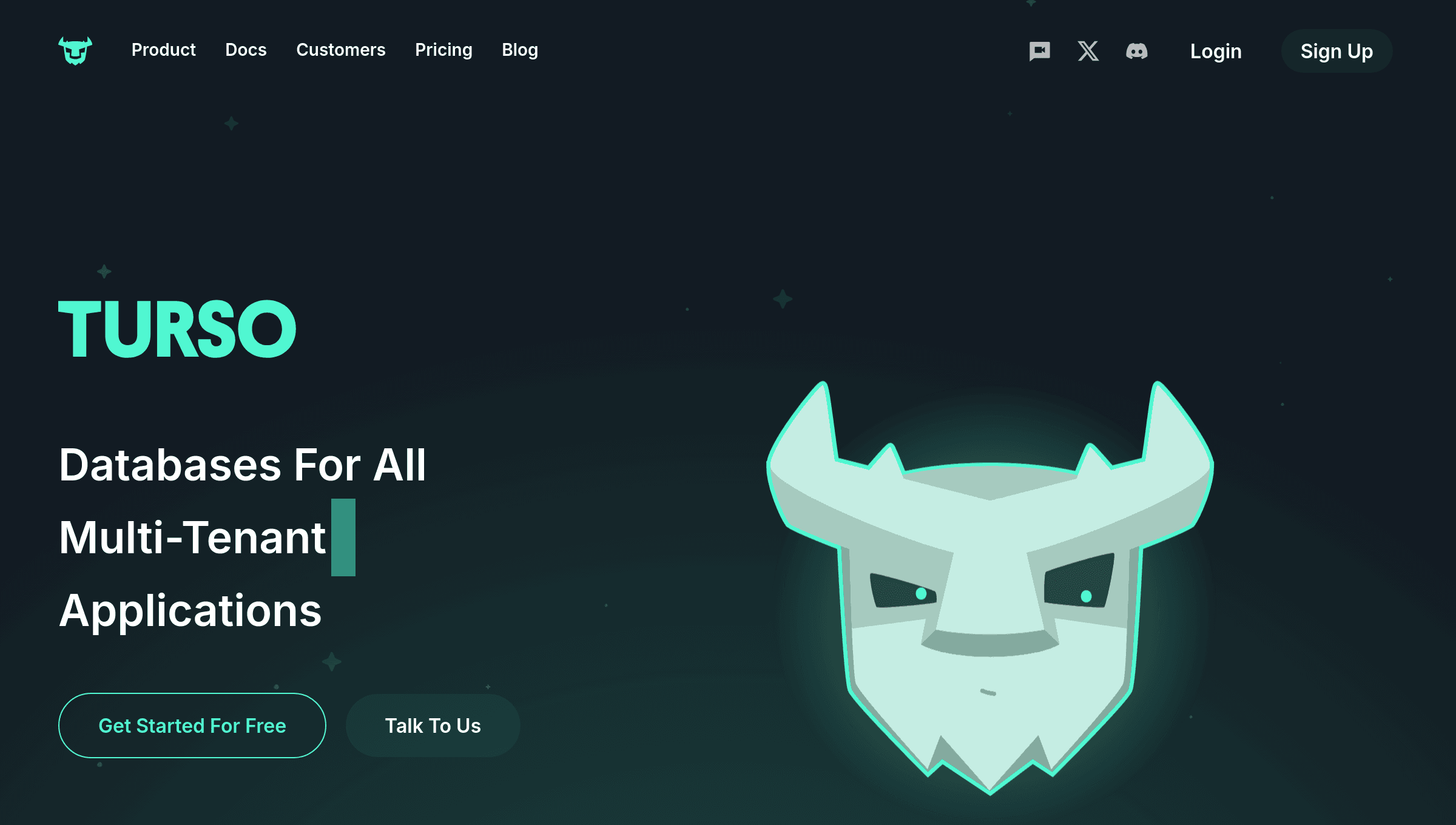
Turso is another best database for Next.js projects. It is an edge-optimized open-source database for modern serverless applications. The platform is built on SQLite. The low-latency database aligns perfectly with any of your Next.js projects.
However, you can simply host the database on any remote server. The platform focuses on edge deployment. So, you can have faster query execution for global distribution.
Types
- Relational database
Pros
- Turso is an open-sourced, serverless, and edge-optimized database.
- It is based on SQLite and has low latency.
- It focuses on edge deployment and offers global distribution.
Cons
- It is a locally embedded database, so it needs additional management.
- The platform doesn’t offer auto-scaling, and scaling is also difficult.
Final Words
Databases for Next.js applications not only help you fetch and store dynamic content but also facilitate data management and scalability. However, choosing the best database for the Next.js project highly depends on your goal.
We have shared the top database for Next.js so you can just explore and choose the best one you need.
Related Articles
Sumaiya Afrin Kanak
11+ Best Next.js E-commerce Templates for 2026
Building a successful e-commerce website is no small feat! Especially when you are coding it from scratch. Designing a u
Read MoreVinish Bhaskar
21+ Best Next.js Admin Dashboard Templates - 2026
Are you looking for an Admin Dashboard Template for your Next.js project? Look no further! We've curated a list of 21+
Read More
